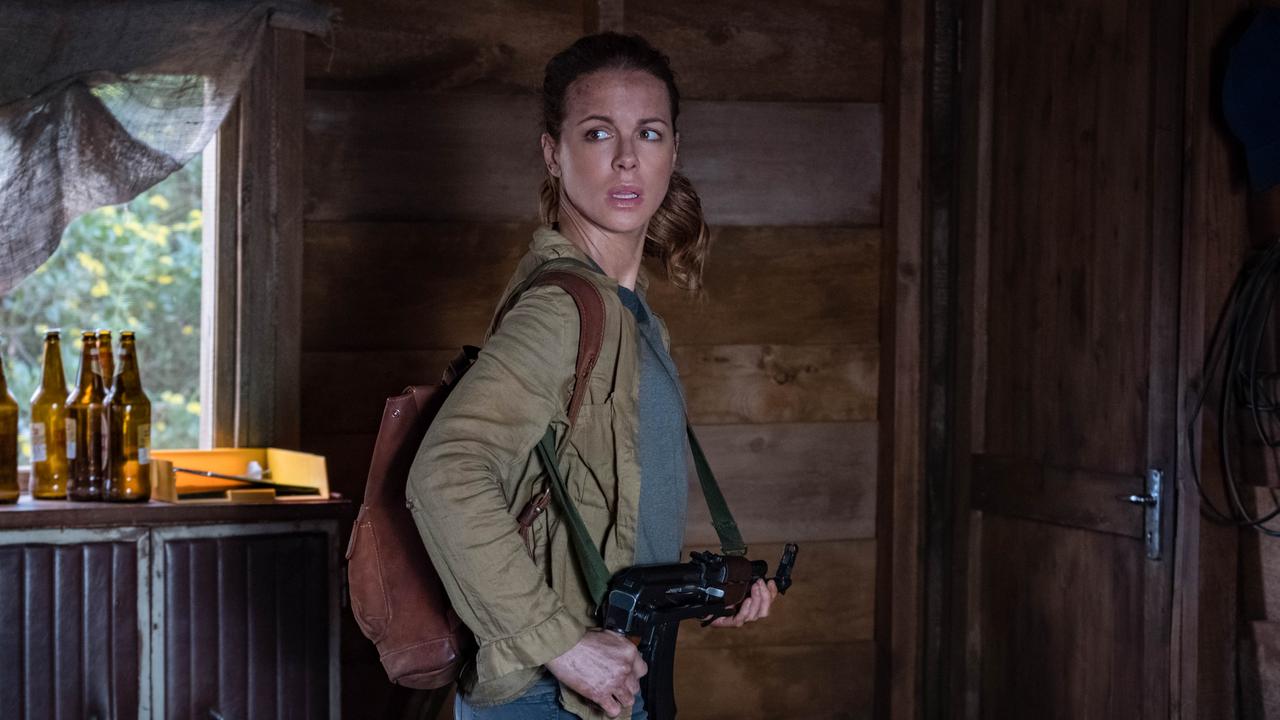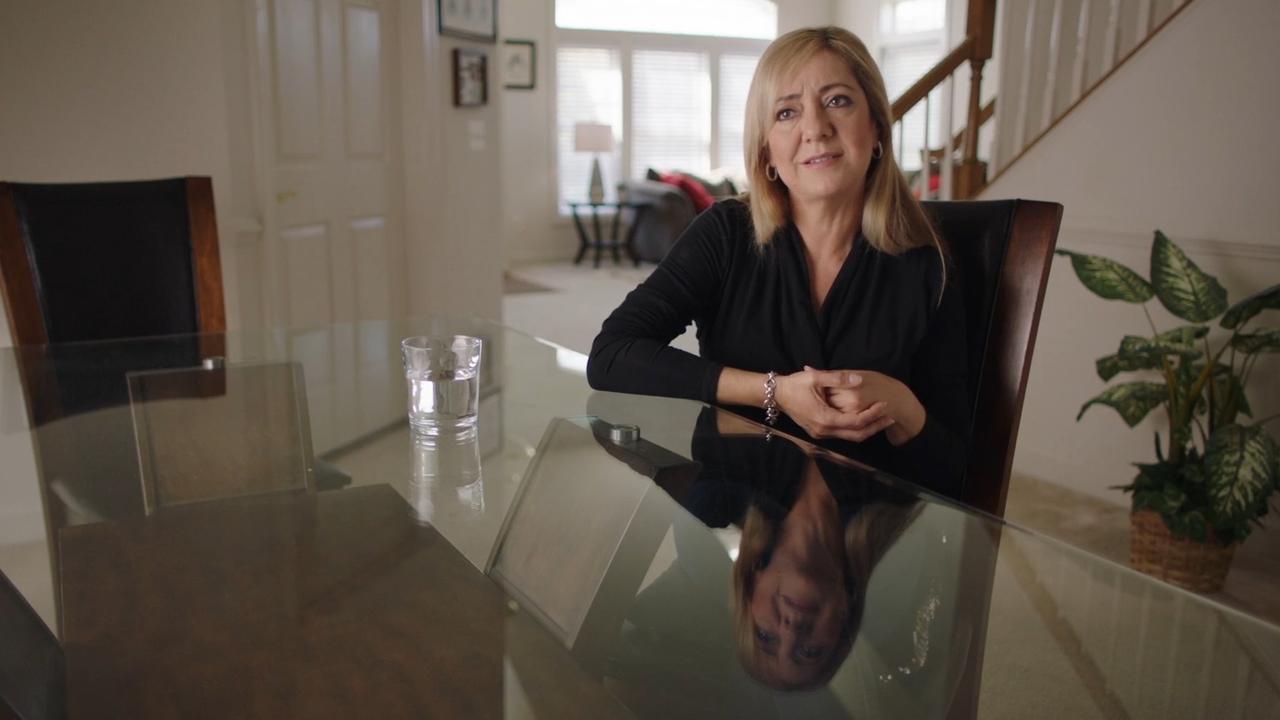Make 'Em Laugh: The Funny Business of America
COMEDY is "a socially acceptable form of hostility and aggression", according to pugnacious American comedian George Carlin.
COMEDY is "a socially acceptable form of hostility and aggression", according to pugnacious American comedian George Carlin.
"That is what comics do, stand the world upside down."
Carlin, who gave voice to a resentful counterculture in the 1960s and 70s, banging away at the barricades of censorship on behalf of a generation of comics that followed him, died last year. But he is a splendidly insightful presence in ABC1's new documentary series exploring the history of American comedy.
Make 'Em Laugh: The Funny Business of America was created for US public broadcaster PBS by writer, director and producer Michael Kantor, who also concocted that other terrific public TV show Broadway: The American Musical. He's done another comprehensive job of encapsulating a similarly expansive domestic art form. This time, though, rather than adopting a chronological approach, Kantor creates episodes around ideas. Billy Crystal is the amusing presenter and Amy Sedaris the energetic narrator.
The six-part series covers stand-up, film and television comedy from the advent of cinema onward, interspersing clips and archival footage of comedians with interviews from historians, biographers and other comics. And Kantor does it at speed, like a Robin Williams monologue without the profanity. Each 53-minute episode manically focuses on a different style of humour: physical comedy and slapstick; the nerds, jerks and oddballs; satire and parody; the domestic sitcom; the subversive groundbreakers; and wise-guy gags.
His mantra, it seems, was E. B. White's famous observation that analysing humour is like dissecting a frog: "Few people are interested and the frog dies."
Each episode therefore moves helter-skelter through a series of sharply edited film and video clips of particular stars, mixed with appreciative, often enlightening, interviews. There are more than 100 in all, from comedians, producers, directors, writers and social historians; everyone from Mort Sahl and Sid Caesar to Steve Martin and the formidable Roseanne Barr.
"Freedom of speech is a weapon against evil," Barr, these days a grudging, disgruntled figure, says of comedy. "You've got to use it or lose it."
Co-written by Kantor and Laurence Maslon, the series' through-line is the way comedy defines the US's character, dramatising national types, styles, customs, issues, and language. Kantor appreciates how the greatest American comics have always found themselves outsiders, mocking those who claim authority and poking fun at the political system, race relations, gender issues, and prevailing standards and taboos in everyday life. As Crystal says, most of them have been "massively depressed, bitter and angry".
One of the most entertaining and recurring of Kantor's themes is the revenge of the comic fools who hold out the hope that fate is not unconquerable.
There's Woody Allen's unlikely sex symbol in the 60s, who scored only because he was funny. Phyllis Diller, who began performing at 37 to escape a horrific marriage, was forced to look like a frenzied clown to be heard. And gorgeous Jean Carroll, the first female stand-up comic in the stitched-up Eisenhower era, regaled viewers on The Ed Sullivan Show with stories of her miserable marriage and her rotten kid.
Last week's second episode - because they are not sequential, you can drop in any time for a laugh or a piece of humorous wisdom - looked at that most American of comic ideas, the domestic situation comedy.
As Kantor drolly illustrated, the genre has hardly changed since The Goldbergs, a 1949 show about a striving Jewish family in The Bronx considered the country's first sitcom. Some lovely footage of Gertrude Berg's black-and-white series showed her gentle treatment of family, neighbourhood and the balance between old-world values and new-world assimilation.
Kantor suggests that the basic conformation of the sitcom never really alters from The Goldbergs right through to Frasier, with their distinctive mixture of humour, sentimentality and the teaching of small moral lessons.
This week's episode, Slip on a Banana Peel: The Knockabouts, examines physical comedy and slapstick. They have always found rich soil in the US. "This country has been a sea of voices for so long, a melting pot," says TV comedian Conan O'Brien in the episode. "Think of that image; it's hot, bubbling over. That's where things happen; that's the primordial soul for comedy."
Kantor shows how slapstick evolved from the mysterious artistry of Charlie Chaplin and Buster Keaton to the internet-generated mayhem that has created a maelstrom of physical comedy. Tens of millions of images of people falling down, hitting each other or tripping over are now zipping around between computers.
Kantor concentrates on the past with irresistible clips that explore the comic genius of teams including Laurel and Hardy, the Three Stooges, Martin and Lewis, and the Marx brothers. The one and only Lucille Ball is, of course, also celebrated.
There's also a great interview with Joseph Frank Keaton VI, known as Buster, who talks about his violent circus beginnings and how Harry Houdini gave him his moniker after the youngster took a stumble at six months of age and didn't shed a tear. He also explains the origins of what he calls his "frozen face" style of performance. "I always want the audience to double-guess me," he says. "And then I'll double-cross them."
The clips of Keaton's extraordinary stunts, so dangerous and exhilarating, reminded me of Thomas Mann's famous idea of clowns in Confessions of Felix Krull. He called them "basically alien beings, side-splitting, world-renouncing monks of unreason, cavorting hybrids, part human and part insane art".
I enjoyed it all enormously. It helps that as a viewer I'm a sucker for clips of comedians working, talking about their arcane craft and offering critiques of other comics, and Make 'Em Laugh is filled with them. Comics are almost paranoid observers of the work of their contemporaries. They need to be. As Jack Benny said, "Comedians are people who steal jokes for a living."
I just love the way series such as this heap thousands of images into our imagination. They show us that TV isn't a library with shelves but a flow of dreams, many of which we will remember and others we submerge somewhere from where they rise up occasionally to nudge us.
Only one thing is strange about Kantor's survey. Make 'Em Laugh premiered only this year in the US, but the director rather bizarrely pays almost no attention to the way TV humour has been quietly evolving in the past decade. The Larry Sanders Show, Sex and the City, Arrested Development, The Office, My Name is Earl, and more recently United States of Tara have changed the nature of TV comedy. Gone are the three-walled sets, studio audiences, the four to six pretty professional people occupying a sofa, and the three camera set-ups on a Hollywood soundstage style of recording.
The new TV comedies are closer to the look of film, shot one-camera style, less stagy, more art-directed.
The sitcom is breaking away from its origins as self-contained short plays for TV, confined to an electronic approximation of a proscenium arch theatre, complete with laughter and applause.
The latest is Parks and Recreation, a newish American series already into a second season in the US but that has only recently started on Seven in the out-of-ratings period. It was co-created by Greg Daniel and Michael Shur, part of the creative team on The Office, which stars the very funny Steve Carell and is fast becoming one of TV's great comedies.
Despite initial speculation the new show would simply spin off from The Office, Parks is set in the world of small-town politics rather than the claustrophobic world of modern American office life.
It's similar to Geoffrey Atherden's witty Australian comedy Grass Roots, which explored the trials and tribulations of Arcadia Waters Council, where the local politicians dream and scheme, intent on climbing the political ladder through corruption and shady deals.
Amy Poehler (Saturday Night Live) stars in Parks as Leslie Knope, an ambitious and hopeful small-town government worker, a mid-level bureaucrat in a parks and recreation department in Indiana.
Most of the first season centres on Knope's attempts to turn an abandoned construction pit site into a community park after meeting local nurse Ann Perkins (Rashida Jones). Perkins brings up the issue of the pit to the parks and recreation department after her musician boyfriend Andy Dwyer (Chris Pratt) falls in and breaks both his legs.
Knope is alternately helped and undermined by her colleague, Tom Haverford (Aziz Ansari), who officially changed his name from Aziz Abdul Al'Rahman. He considers himself a redneck because he was born in South Carolina and likes to exploit his position for personal gain. But Krope is also thwarted by her boss Ron Swanson (Nick Offerman), who is philosophically opposed to government in any form.
The series started a little slowly, slightly tentative and unsure of itself, waiting for the ensemble chemistry to appear between a talented cast of comically gifted individual actors. Poehler, Ansari and Jones dominated in presence and screen time at the start but now the other characters are starting to breathe a little, carving out their own space within the accomplished ensemble group.
Poehler's Knope is the standout. She's the female equivalent of The Office's Michael Scott, blessed - or cursed - with the same overzealous enthusiasm that simultaneously impresses and annoys anyone with whom she is involved. Knope always has one eye fixed on the hitherto impossible and on pushing her talent beyond her established limit. Poehler's gift is her ability to switch moods without offering a signal as her mind operates on several wave lengths at once.
Liking Parks is an endorsement of the kind of idiosyncratic sensibility that is in short supply on TV. Compared with the conventional sitcom, which is rarely prickly or uncomfortable, Parks strips away artifice to reveal truths. It doesn't simplify or comfort. It reflects life: messy, harsh and uncertain.
Make 'Em Laugh, Monday, 9.35pm, ABC1.
Parks and Recreation, Mondays and Tuesdays, 11pm, Seven.


